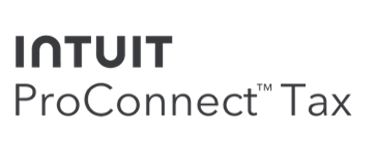
The Tax Season Nightmare
7 Questions to Ask Yourself After a Painful Tax Season
1) Were bad clients killing your motivation and profit?
It’s no secret that clients can make or break your tax season. Good clients make you feel valued. They give you a great sense of achievement professionally, and some of them might even become your personal friends.
But what happens when you encounter bad clients? The kind that doesn’t respond to you or leave you hanging on requests for information or approvals? As much as it pains you to go through the process of firing toxic clients, you should know that a relationship is a two-way street. If you feel undervalued or disrespected by your clients, it’s time to let go so you can reserve time and energy for the rewarding clients who make you feel accomplished and happy.
If you have suffered from bad clients during this tax season and are ready to start making some changes, here are some tips on determining which clients to let go of.
2) Are you pricing services effectively to justify your effort?
Nothing demotivates people faster than being overworked and underpaid. As an independent tax account, if you’re constantly feeling like you’re not getting paid enough for the value of your work, likely, your pricing model isn’t correctly reflecting the value of your service.
3) Was your tax workflow efficient?
Your tax workflow efficiency directly determines the overall quality of your tax season. While we can write a book on this subject, below are some quick questions to get the juices flowing.
- Am I spending more hours on manual, non-billable admin work than actual tax filings?
- Are client documents coming in from too many sources for me to stay organized?
- Is it a pain to look for the information I need to process client returns?
- Am I always wasting time waiting for client files?
- Do I have a standardized, smooth business process for handling client work?
Once you’ve identified gaps in your workflow, the next step is to start making a plan for change. You can use this step-by-step guide to help fine-tune your tax workflows for next season’s success.
4) Did your software sufficiently support your operational needs?
The sharper your tools, the better it helps you to get the work done. As you look back at this past tax season, are there any major challenges with the software you’ve used to support the business?
While you may have a strong opinion on which tax software serves your firm the best, the technology you need to build an efficient accounting practice may go beyond just your core tax software. For example, Dawn Brolin, president of Powerful Accounting actually uses a whole stack of software that includes Lacerte for tax filings, SmartVault for client portal, and Karbon for Practice Management to support her business. According to her own calculations, her tech stack was so well-connected that it gave more than $30K back in terms of saved hours to her tax season.
5) Did you have enough staff to complete the work?
The term “teamwork makes the dream work” was invented for a reason. When you have plenty of members on your team, you are more likely to meet deadlines and less likely to come across any human errors. Many firms will decide to hire seasonal staff during the busy tax season to help alleviate the influx of work that comes in during this time. This makes it easy to allocate resources throughout the year based on how your workload changes.
6) Are you or your staff feeling burnt-out?
Tax season is stressful and oftentimes can lead to employee burnout. Staff members who start to feel this way are likely to quit, and oftentimes they don’t wait for the end of tax season to do so. In order retain your staff for as long as possible, ensure that you are finding ways to incorporate mindfulness into the work day and promote a healthy work-life balance. Employee burnout can often go unnoticed, check out these signs often associated with burnout and ways to mitigate if needed!
7) Should you extend service offerings to create more balance in your book of business?
Clients are looking more and more for a business partner or financial director relationship from their accountants (and bookkeepers), and in this even faster paced and unpredictable business environment we are increasingly expected to be able to help our clients make critical business decisions, fast. In this webinar, we discuss what services you should be offering to become a trusted advisor, rather than an accountant, how we can create efficiencies within our firms to create the time required to provide these advisory services.






